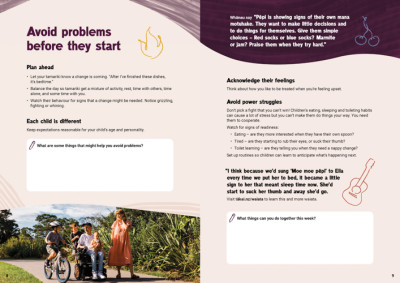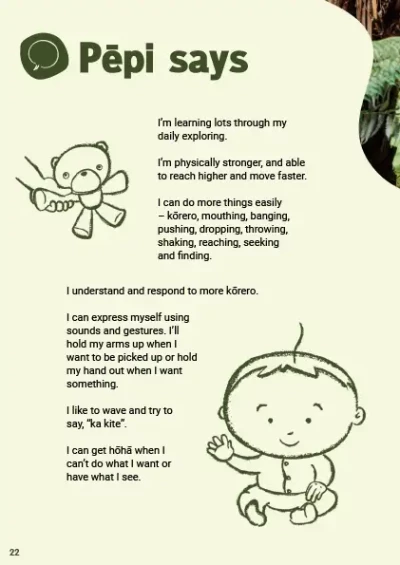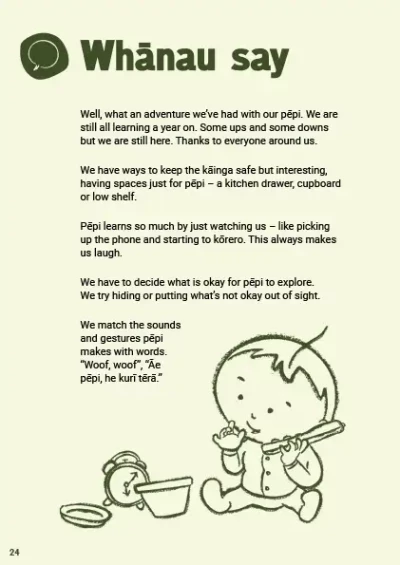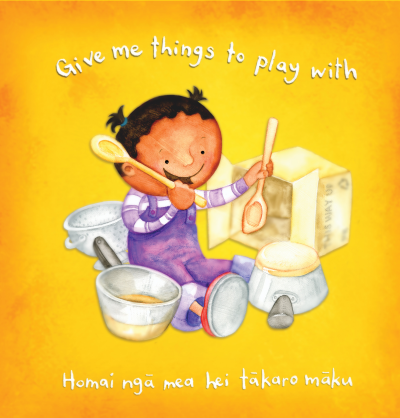
Guiding a baby who is on the move
As babies start to move, they start to explore their physical world. Whānau can support baby’s learning by giving them simple, safe objects to play with, and consistently reinforcing whānau boundaries.
As babies become more mobile, they become curious and keen to explore what they can grab and put in their mouths. They’re motivated by their developing brain, which is telling them to move and to learn about and make sense of their environment. Listening and talking to them is key to their learning and development at this time. It helps them to feel safe and supported.
Many parents see this stage as the start of them having to think about discipline – teaching and guiding their pēpi in order to keep them safe. The true basis for effective discipline, and for ongoing learning throughout life, is building early relationships and communication. This starts at birth.
Making a home a ‘yes’ environment will make it safer for an exploring baby and means whānau don’t have to say ‘No!’ too often. Here are some ways to do this.
Give pēpi safe things to explore
Give pēpi a variety of interesting and safe objects to explore. Suitable items are in most homes and don’t have to cost a lot. They might include:
- balls and other things that roll
- boxes and containers
- plastic and metal bowls and pots of different sizes
- spoons and other safe kitchen utensils
- pegs without springs – which can pinch little fingers or become a choking hazard if they come off
- blocks, especially wooden blocks, that can be stacked easily – these are often found in secondhand shops
- smaller items for putting in and taking out of containers – check size for safety, anything that could fit inside a paper towel tube is too small
- books – these can be homemade or borrowed from the library.
Set a few limits
Finding a balance between exercising their curiosity and staying safe will result in times when whānau need to limit baby’s activities.
Set a few limits for keeping baby safe that everyone in the family supports. These might be called the whānau code or tikanga . The whānau code needs everyone’s agreement because pēpi will copy what they see others do, not what they say.
The limits are to help baby to learn. They’re not about punishing them for doing what comes naturally at this age. Describe limits as things to do, rather than don’ts – because this is how a baby learns best. Words like ‘don’t’ and ’no’ are not helpful, but calmly saying what you want them to do is.
Examples of what might be in a whānau code or tikanga:
- Gentle touching, no hitting, scratching or biting people or pets.
- Hair is for brushing, not pulling.
- Chairs are for sitting on, not standing.
- Nana’s glasses are for Nana, not for baby.
- We say ‘stop’ when pēpi is moving to touch something that’s not okay.
Follow through consistently
Great parenting requires wise supervision, and whānau need to act every time pēpi doesn’t follow the limits. Being consistent is the key, and it can be done in a nurturing way.
- Start by saying what you expect in a firm but warm tone of voice, for example, if pēpi grabs the cat’s tail, “gentle”.
- Then show them what to do, for example, how to pat the cat gently.
- If pēpi grabs the cat again, move them away from the cat straight away. This shows pēpi parents mean what they say.
- Do this every time.
If parents don’t follow up, pēpi may learn that they can just keep repeating something until somebody finally comes and moves it out of their way. Similarly, yelling at them will not help their learning.
Expect repetition
Babies learn through repetition and may keep testing the limits. The important thing for whānau to realise is that babies aren’t behaving in this way to upset and annoy them – they’re repeating to learn.
Staying loving and consistent can feel like hard work at such times. But, warm and consistent responses will help keep baby safe, keep precious items safe, and encourage peace in the family. This is the start of positive discipline and of great caregiving and supervision.
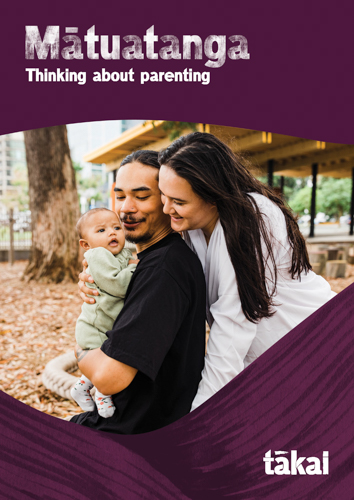 pdf 11 MB
pdf 11 MB
